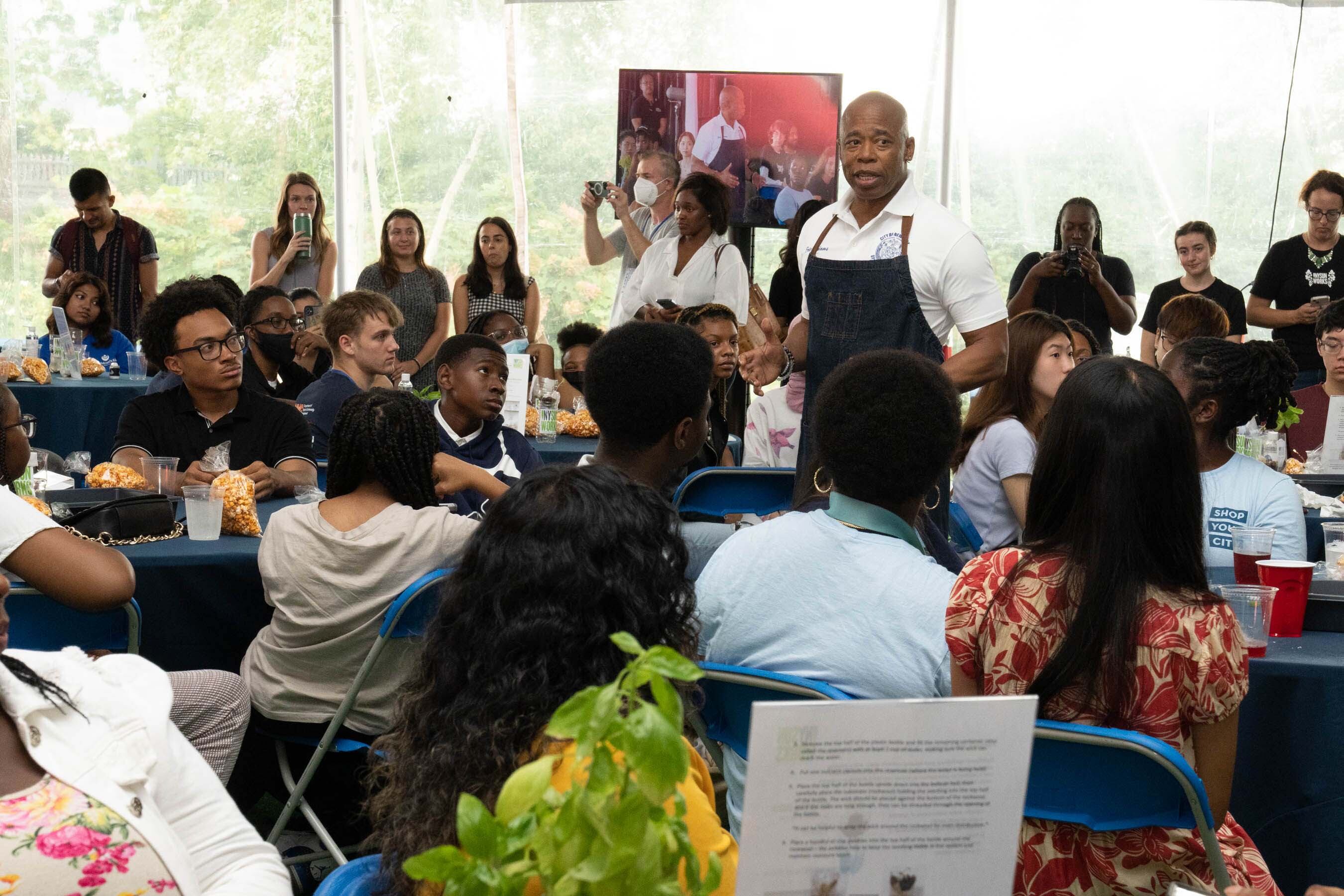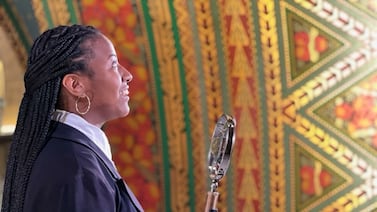As some states pass anti-LGBTQ+ laws, New York City is moving in the other direction with plans to offer “safe and affirming” jobs to LGTBQ youth through its sprawling summer employment program.
The effort will be part of the city’s now 60-year-old Summer Youth Employment Program, or SYEP, which last year provided about 100,000 paid jobs and career exploration opportunities to young people, ages 14-24.
Mayor Eric Adams has shown special interest in the summer jobs program — with hopes that it would help reduce gun violence among young people — and expanded it last year by adding 25,000 more slots. As part of his annual State of the City address in January, the mayor’s office noted plans to create “supportive work opportunities” for LGBTQ+ youth.
Details are so far scarce on what the initiative — dubbed “SYEP Pride” — will look like, or what will define a safe and affirming workplace. Officials are hoping to reach “a few hundred young people,” but the ultimate program will depend on how many LGBTQ+ youth apply through March 31, when the SYEP application period closes, said Mark Zustovich, a spokesperson for the Department of Youth and Community Development, or DYCD, which oversees SYEP.
“SYEP Pride will connect young people who identify as LGBTQ+ with supportive, safe and affirming work and career exploration experiences,” Valerie Mulligan, deputy commissioner for Workforce Connect at DYCD, said during a recent City Council hearing focused on youth services. “The program will also allow employer partners to offer unique employment and learning opportunities that will support and empower LGBTQ+ youth through the SYEP program.”
City officials did not immediately say why they’ve decided to launch this program now. But it comes at a time when LGBTQ+ rights have taken center stage nationally, as conservative states have proposed anti-LGBTQ+ laws, including banning discussion of sexuality and gender identity in classrooms.
Discrimination in the workplace has long been an issue for this community, including youth. Just over one-third of young people reported experiencing discrimination in the workplace, with higher rates among transgender and nonbinary youth, according to a 2020 survey of 40,000 LGBTQ+ youth, ages 13-24, conducted by The Trevor Project, an organization that advocates on behalf of LGBTQ+ young people.
More than 80% of youth who reported discrimination said it came from co-workers, while half said it came from supervisors. Youth who said their employer was LGBTQ+-affirming also reported slightly lower rates of attempting suicide compared with those who didn’t feel their workplaces were welcoming.
“Further, our data indicate an urgent need for companies to develop diverse and inclusive hiring strategies as well as to create workplaces that are affirming and supportive of LGBTQ+ youth, particularly those who are transgender and nonbinary and/or youth of color,” the Trevor Project survey brief noted. “Doing so will not only require companies to train all staff on diversity and inclusion but also to create a culture in which diverse identities are appreciated and celebrated.”
Reema Amin is a reporter covering New York City schools with a focus on state policy and English language learners. Contact Reema at ramin@chalkbeat.org.







